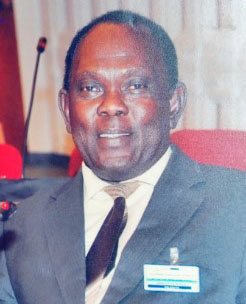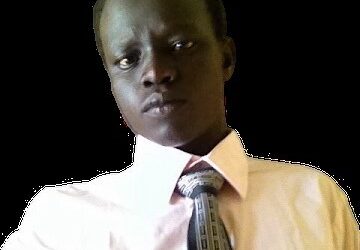By James Aniceto Batikaiyo
In 1946 Sir Douglas Newbold, the British Governor of Sudan, officially declared that southern Sudan must be united with northern Sudan as one sovereign country.
That announcement was peculiar to many in southern Sudan due to previous British colonialist extrapolation.
In that same year, 1946 all political parties in Sudan were invited to Cairo, Egypt for a discussion of self-determination for Sudan. Unfortunately, southern Sudanese were not invited to that occasion.
The excuse was that there were no political parties in southern Sudan. In other words, southern Sudanese were not yet organized as mature politicians to participate in such an event. In June 1947, a conference was held in Juba under the pretext of seeking the opinion of the people there in the South for unity with northern Sudan.
In fact, the conference was a mere camouflage for decisions already taken by the colonists; the British and the Egyptians. What followed was that the Egyptian Dynasty was toppled by an army coup in July 1952.
The military rulers already had subterranean communication with northern Sudanese political parties. Hence, they were able to seal a deal with the British for self-determination in Sudan.
Very many people in southern Sudan were disillusioned and pathetic about the politics of the day for the independence of Sudan. In 1954, a group of southern Sudanese intellectuals led by Mr. Benjamin Lwoki declared in Juba the Liberal Party as the first established Southern Sudanese Political party on the planet. Mr. Abdal Rahaman Sule who was an elderly politician was the chairman of the newborn party.
The vision of the party was about the realization of the federal Sudan with southern Sudan as one of the federal states or the attainment of total independence of southern Sudan.
As the first democracy (1946-1958) plummeted after independence, the liberal party which was the sole political party in southern Sudan also withered away as a result. There were no political parties operating in Sudan since the Junta assumed power in 1958 and had to hand it back to the political parties upon a popular revolution in October 1964.
Two political parties then emerged in the South, the Southern Front and the Sudan African National Union (SANU). The former party advocated in its vision for the independence of southern Sudan and the latter called for a federal state within one Sudan. Again, that momentum was shuttered by a military government which seized power in May 1969.
The new military rulers straight away dealt a deadly blow to all political parties at a go, by dictating a one-party system in the country that lasted until another rise of political parties in a popular revolution on April 6, 1985.
Political parties of the Southern Front and SANU could not preserve their structure intact and could not as well preserve their work as their northern counterparts of the Umma and the DUP.
Again, new political parties surfaced in the political arena, particularly in Equatoria in southern Sudan. Those were the People’s Progressive Party (PPP) and the Sudan African People’s Congress (SAPCO) calling both for the split of southern Sudan into three regions within Sudan. “Kokora” was the popular local name of that demand. Other political parties such as SANU remained resolved and solid in southern Sudan as a self-ruled region in Sudan.
After the comprehensive peace agreement between the Sudan Government and the Sudan People’s Liberation Army/Movement (SPLA/M) in 2005, the civil war raging in southern Sudan was then brought to an end and the gate was very widely opened to usher in the new southern political parties, very many of which, if not all, have no clear political vision and persuasion.
Worst of all, these parties have no financial resources to prop up their activities and ads. Their party members if any do not pay membership fees and subscriptions and donations are not forthcoming to them.
The civil society organizations are at present more competent and very proactive than political parties. It is worth- mentioning at this juncture that the two main parties of Sudan: The Umma party and the DUP were provided by the colonial condominium with bank loans and feddans of agricultural lands to finance their politics.
This is the secret behind their survival in Sudan up to date after more than sixty years. The two parties simulate in their desperation the two-party system in the United States of America, the Democrats and the Republicans or the British Labor and Conservative parties.
Maybe South Sudan could better have a similar system for galvanizing its national unity and consolidating its socio-economic cohesion. Of course, it is hard to have the same in South Sudan because many citizens are not law-abiding.
For example, in spite of the explicit stipulation of section 7 subsection 1 of the Political Party Act 2018 quotes” No Association of persons or organization shall operate or function as a political party unless it has been registered in accordance with provision of this Act. Unquote yet the opposite happened. Many individuals who are members of the parties registered by law are also unseated from parliament.
The law has been broken and the perpetrators are at large and cannot be brought to book. Maybe they are above the law.
All over the globe where political parties register prior to their operation in compliance with law, there are no two parties sharing one name as in South Sudan today. Also, there is no political party in opposition and at the same time, it is at top hierarchy of government.
No need for flop-flopping because it is ugly to look at and discrediting to the whole country. In a world where political parties are numerous, they are grouped up. One group is known as Far Left and another one is called Far Right beside the liberals or centralists.
Examples are in France, Germany and other countries. It could be good enough if we follow suit in South Sudan so that political parties that are more than thirty claiming to have been registered could have a clear vision, mission, persuasion and sufficient finances as the Nation is cruising through a convoluted transition to elections.
Political parties have been gridlocked in South Sudan since 1954 and that should cease sooner than later. God bless.




